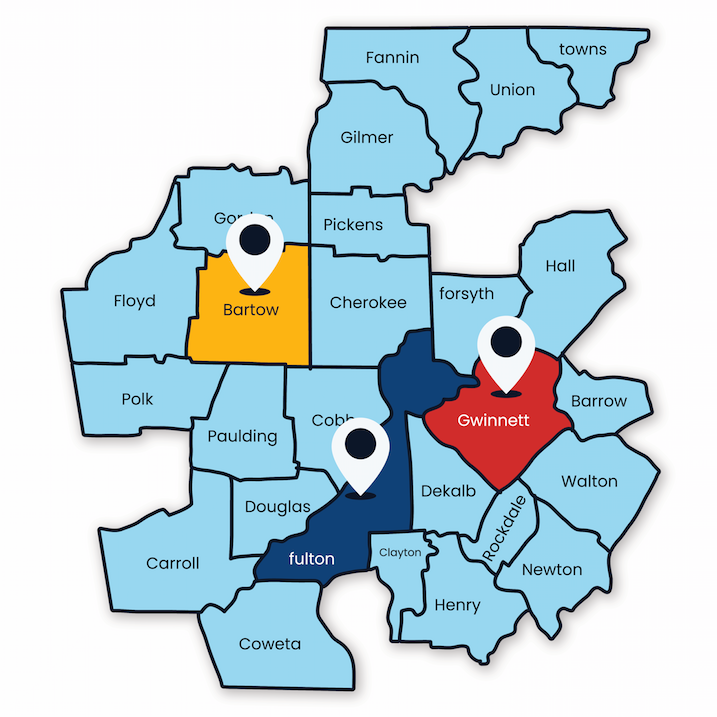What is In-Home Nursing Care?
In-home nursing care is vital in hospice care, offering compassionate, professional medical support to individuals with life-limiting illnesses. This type of care allows patients to receive personalized medical attention in the comfort of their own homes, where they can be surrounded by family and familiar surroundings. Our board-certified physicians, nurses, and support staff work closely with families to meet every patient’s physical, emotional, and spiritual needs.
In-home nursing care focuses on relieving pain and other distressing symptoms, improving the quality of life for hospice patients. We aim to preserve each patient’s dignity through medical expertise and empathetic care and offer families peace of mind.
Signs That In-Home Nursing Care is Needed
Families may need to consider in-home nursing care when certain signs and symptoms become more frequent. Some common symptoms that indicate the need for this type of care include:
- Persistent and uncontrolled pain
- Difficulty breathing or shortness of breath
- Frequent nausea or vomiting
- Worsening mobility issues
- Increased confusion or anxiety
- Decline in the ability to perform daily activities, such as eating, dressing, or bathing
- Chronic fatigue or weakness
Why In-Home Nursing Care is Crucial
Caring for a loved one during their final stages of life can be emotionally and physically exhausting for family members. In-home nursing care provides professional support, enabling families to focus on spending quality time with their loved ones rather than managing complex medical needs. Trained hospice nurses are experts in pain management, symptom control, and end-of-life care, offering a level of medical expertise that family caregivers often cannot provide alone.
Moreover, in-home nursing care ensures that patients receive continuous monitoring and treatment in a familiar and comforting environment. This is especially important for patients who may feel anxious or disoriented in a hospital or facility setting. With in-home nursing, care is tailored to meet each patient’s unique needs, providing a more personalized approach that hospital settings often lack.
Steps of the In-Home Nursing Care Process
In-home nursing care involves a structured approach that ensures comprehensive support for both the patient and their family. Each step of the process is carried out with compassion and attention to detail:
- Initial Assessment: A hospice nurse will conduct an evaluation to understand the patient’s medical condition, symptoms, and overall care needs.
- Care Plan Development: Based on the assessment, a customized care plan is created, including pain management, medication schedules, and symptom control strategies.
- Routine Visits: Hospice nurses visit the patient regularly to monitor their health, adjust medications, and provide ongoing care.
- Emergency Support: In-home nursing care includes 24/7 access to emergency medical support, ensuring that urgent needs are addressed quickly.
- Coordination with Physicians: Nurses coordinate with board-certified physicians to adjust care plans as the patient’s condition changes.
Enhancing Comfort and Reducing Symptom Severity
Although preventing the progression of terminal illnesses is not possible in hospice care, the goal is to alleviate symptoms and maximize comfort. Pain management is one of the key components of in-home nursing care, ensuring that patients are not suffering unnecessarily. Alongside physical symptoms, hospice nurses also address psychological needs, helping patients and families cope with emotional distress.
Another focus of care is reducing the impact of symptoms such as shortness of breath, nausea, and fatigue, making daily life more manageable for the patient. By prioritizing symptom management, in-home nursing helps patients maintain a sense of control and dignity during their final days.
Quality of Life and Peace of Mind for Patients and Families
By relieving pain and reducing the severity of symptoms, in-home nursing care allows patients to spend their remaining time in comfort and peace, surrounded by loved ones.In-home nursing care also extends to family members, offering emotional and psychological support during a very challenging time. Our team works closely with families to ensure they understand what to expect as their loved one’s condition changes, providing comfort and guidance every step.
Frequently Asked Questions
How often will a nurse visit?
Nurses typically visit multiple times a week, but visit frequency depends on the patient’s needs and the care plan.
Is in-home nursing care covered by insurance?
Most insurance plans, including Medicare and Medicaid, cover hospice in-home nursing care, but it’s best to check with your provider.
Can the care plan be changed over time?
Yes, the care plan is regularly updated based on the patient’s changing condition and symptoms.
What kind of medical support can be provided at home?
In-home nurses provide a range of medical services, including medication management, pain relief, symptom monitoring, and emergency care.
Will nurses provide support during emergencies?
Yes, in-home nursing care offers 24/7 emergency support, ensuring that urgent medical needs are addressed promptly.
Personalized In-Home Nursing Care for Hospice Patients
In-home nursing care brings expert medical attention directly into the home, allowing patients to live out their final days in a place they cherish, surrounded by loved ones. By addressing both physical and emotional needs, our hospice team helps ensure that each patient’s end-of-life journey is as peaceful and comfortable as possible. Whether it’s managing pain, controlling symptoms, or providing emotional support, our team is dedicated to delivering the highest quality of care.
If you or a loved one could benefit from compassionate in-home nursing care, reach out to us today. Our hospice team is here to answer your questions, develop a care plan, and provide the support your family needs during this difficult time.

